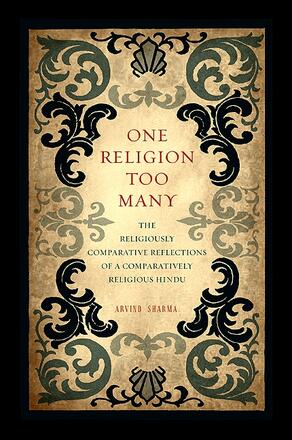
One Religion Too Many
The Religiously Comparative Reflections of a Comparatively Religious Hindu
Alternative formats available from:
Enlightening encounters with the world's religions from a Hindu perspective.
Description
One Religion Too Many is a Hindu pilgrim's progress through the world's religious traditions. An eminent scholar of comparative religion, Arvind Sharma provides a first-hand account of how he came to be a party to the dialogue of religions—first with his own religion, then with the comparative study of religion, and finally with the religious universalism he has come to espouse because of this heritage. Starting with an account of the Hinduism of his family in Varanasi, India, Sharma then heads west, finding himself dumbfounded by the Christian Eucharist, wondering if there is a "Hinjew Connection," grappling with Zen in Massachusetts, and pressed into service to teach about Islam. Sharma writes with a light touch, but even when his encounters and perceptions are amusing, they are always insightful and thought-provoking. Western readers, in particular, will enjoy seeing their own traditions through the eyes of an Easterner who has come to know them well. Sharma's ultimate perspective on religious universalism is a welcoming vision for the globalizing world of the twenty-first century.
Arvind Sharma is Birks Professor of Comparative Religion at McGill University. His many books include Hinduism as a Missionary Religion; Religious Studies and Comparative Methodology: The Case for Reciprocal Illumination; and Sleep as a State of Consciousness in Advaita Vedānta, all published by SUNY Press.
Reviews
"Among [Sharma's] wide range of publications, this one is rare and unique … This is definitively a cosmopolitan book in its most rich and vibrant sense … it is a wonderful text for anyone interested in the manner in which a leading contemporary Hindu scholar has thought through comparative issues. " — Journal of Hindu Studies
"Sharma … provokes readers to reflect on what it means to be religious when affiliated to a religion … Sharma writes with deep affection for his own tradition … [and] speaks from an awakened perspective … If all religiously inspired people would think in these terms, this would be a more harmonious world indeed. " — CHOICE
"Arvind Sharma has a charming ability to simultaneously recollect his encounters with other religions from an initially naïve viewpoint and also reflect upon them from his by now very well-informed perspective as one of the world's great scholars of comparative religion. Narrating his voyage of discovery with disarming humor, he leads us through all the minefields of differing beliefs and practices in ways that expose and then tend to dissipate misunderstandings of religion—both our own and others'. " — Mary Pat Fisher, author of Living Religions